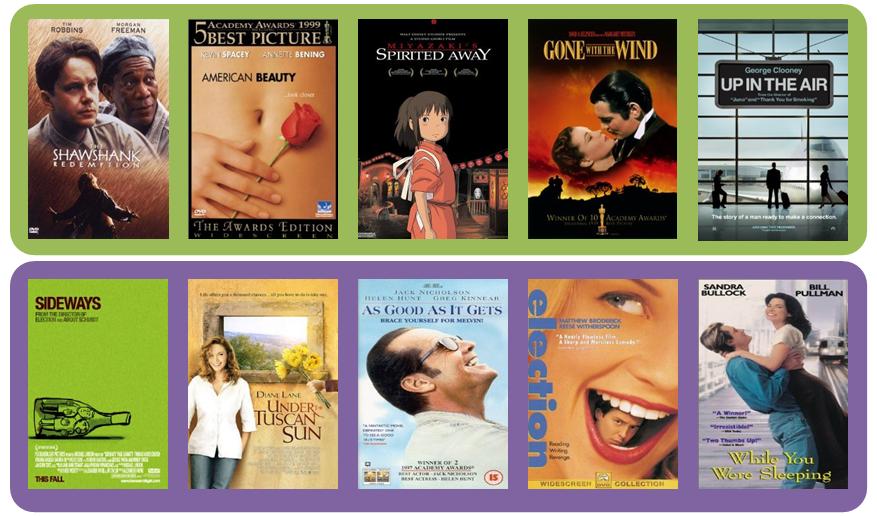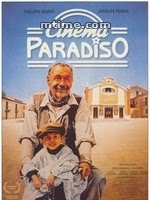New Year Resolution – Exercise
It’s that time again: the beginning of a new year – the best time to make new-year resolutions that impact our lives. Top on my list is regular exercise. It may sound trivial, but I can’t even remember the last time I exercised. As I learned more about the benefits of regular exercise, I realized that it is something no one can afford not doing it. Therefore, I am documenting why I decide to make regular exercise part of my new-year resolution so I can always come back here whenever I feel tempted not to stick to it.
The benefits of regular exercise impact every aspect of one’s daily life because it:
- Improves your immune system so you can stay healthier and love longer
- Reduces risk of developing medical conditions including heart disease, stroke, diabetes, high blood pressure and cancer. (Studies from Journal of National Cancer Institute have shown 3.8 hours of exercise per week may reduce breast cancer risk by 58%.)
- Builds strong muscles, bone, stable joints; improves flexibility and reduces injury
- Improves mental health. People who exercise regularly are less likely to be depressed
- Improves one’s appearance, delays the aging process and boosts self-confidence.
- Promotes better sleep, which leads to concentration & productivity
Overcome my barriers to regular exercise with practical tips
- Can’t stay motivated – I’m too tired to exercise after working all day. Without exercise, you’ll have no energy. It’s a vicious cycle. Breaking the cycle with physical activity is the best way. Try simple steps: get up 30 minutes earlier to exercise or walkout during lunch break; prepare ahead – keep workout clothes and shoes in your car; plan physical activity for times of the day when you tend to feel more energetic, and remember why you’re exercising.
- Can’t find the time for Exercise. We know fitness is important, but our days are so packed with other things, exercise seems to be the easiest one to skip. Well, the key is to make it convenient for you and make activity part of your daily life. If you don’t have time for a full workout, shorter spurts of exercise accumulated throughout the day offer benefits, too.
- Cross-training is an easy way to add variety to your exercise program and reduce risk of injury. Alternating between a high-impact activity, such as running, and a low-impact activity, such as cycling, can help you avoid overuse injuries and keep you interested. Keep in mind a well-balanced exercise routine includes aerobic exercise, strength training, and flexibility training.
- How often should we exercise? WHO recommends one hour a day of moderate activity most days of the week to maintain good health. Some people may assume that more is better. Wrong! Doing too much too soon or performing intense exercises on a daily basis may backfire on your body and muscles. To me, setting my goal to exercise three days per week is realistic, safe and effective.
It is easy now for me to see why regular exercise is wise. In addition to the benefits it does to our mind and health, the expression “use it or lose it” also holds true here! If you don’t use your body, you will surely lose it. Your muscles will become weak. Your heart and lungs won’t function efficiently. And your joints will be stiff and easily injured. Inactivity is as much of a health risk as smoking! I am committed to making regular exercise my lifestyle choice to become a healthier me starting this year.
My Top 10 Movies of All-time

A Taste of Japan
I just came back from my first visit to Japan. To me, there is no better place to showcase the fusion of east and west, traditional values and modern sensations than Japan. Few people today are not affected in some way by the ideas, culture or economy of Japan. We visited Japan’s modern capital Tokyo, old imperial capital Kyoto, and country city Hakone. Tokyo has reinvented itself as one of the world’s most modern and energizing cities. It’s a shopping paradise with huge department stores, street markets, and fascinating one of a kind shops at Ginza and Shibuya. Unlike the economic vitality of Tokyo, Kyoto is famous for its religious sites: temples, shrines and pavilions are everywhere. Country city Hakone is equally popular for relaxation and hot spring spas as well as the fantastic views of Mount Fuji.
Before I visited Japan, I already read so much about it. However, I feel that it was during this visit I came to understand its traditions and values at a deeper level and be able to relate them to my own outlook in life and work by comparison.
1) Statue of Hachiko – Symbol of Faithfulness and Loyalty
Being loyal and faithful is very important in Japanese people’s value system. I learned that from a visit to the statue of Hachiko. It was built in memory of a faithful dog named Hachiko. In 1924, Hachikō was brought to Tokyo by Professor Ueno at the University of Tokyo. Every day, he saw the Professor out from the front door and greeted him at the end of the day at the nearby Shibuya Station. The pair continued their daily routine until one day the professor suffered a heart attack and passed away in school. Hachikō was loyal and every day he waited sitting at the train station for Professor to return. This continued for nine years with Hachico appearing precisely when the train was due at the station. Hachikō attracted the attention of other commuters. People brought treats and food to nourish him during his wait. The statue was built for people to pay respect to this faithful dog, and he became a national symbol of loyalty.
2) Japanese Cuisine – Wrapping Culture
Japan is famous for its wrapping culture. Everything is wrapped in the most artistic form. From product, food to manners, language, even human body. You can certainly read more about the purpose and power of wrapping in Japanese culture. The best showcase of this concept through my visit is Japanese cuisine. The artistic plating makes Japanese dishes so beautiful that you feel bad to even touch them. This is interesting especially when the content of the dish is simple, the preparation and cleaning afterwards can be time consuming because it takes so many dishes to make a dinner. Although some say that this is tradition because in the past the resource was scarce so Japanese have to make simple food look appealing. But I think pursuing the attractive presentation to the extreme is embedded in their blood. The product packaging is always artful, the streets are always tidy and organized, even people are always dressed nicely and fashionably. It shows that to the Japanese people, content and delivery/presentation are equally important.
3) Restaurant and Work culture
Walking on any street in Tokyo, you will be amazed by the density of restaurants. Every block, every corner, under the bridge, in the subway station, they are everywhere. We like to think this is the direct result of its work culture. We never saw these many people on the street at 10PM on a weekday evening. It’s the norm in Japan for men to work overtime everyday to at least 7PM and then have dinner together with their coworkers after work. It is also not uncommon to see men having dinner alone in the restaurants because as the prime earners in most families, men are expected to climb the corporate ladder by spending time working or socializing with their colleagues. Wives would look down on their husbands if they go home early. Work is an integral part to their identity. You can sense the pressure through the many stand-up restaurants where no seats are provided, or through the fact that most people fall asleep on the subway while the train take them home at midnight. This work culture and long commute time effectively cut their connections with the family: they leave before children get up, come back after they go to bed, and collapse on weekends with fatigue.
I love to travel to different parts of the world, to experience different cultures and life styles. My traveling experience allows me to look at things from different perspectives and to become more open-minded and adaptable in my approach. To me, there is certainly a difference between vacationing and traveling. You can go to Hawaii three times a year vacationing, but it definitely feels different when you travel to different parts of the world to see with your own eyes how people live and work. Those travel experiences have benefited me on so many levels and whenever possible, I will keep on planning my next destination. I encourage other people to set aside time and money to travel and to taste other parts of the world with your own senses.
New Family Member – Dundun
 A friend of my husband has decided to go back to China to pursue his next adventure, leaving behind a 4-year old female cat named Dundun. When Dundun was brought to our house last Thursday, she seemed quite comfortable and started exploring our house immediately. It wasn’t until our friend was about to leave, she suddenly realized her trusted owner was about to take off and leave her behind. She fled to hide herself under the couch and didn’t come out no matter what tricks we used. After my friend left, Dundun stayed behind our TV table the whole night looking very sad and scared.
A friend of my husband has decided to go back to China to pursue his next adventure, leaving behind a 4-year old female cat named Dundun. When Dundun was brought to our house last Thursday, she seemed quite comfortable and started exploring our house immediately. It wasn’t until our friend was about to leave, she suddenly realized her trusted owner was about to take off and leave her behind. She fled to hide herself under the couch and didn’t come out no matter what tricks we used. After my friend left, Dundun stayed behind our TV table the whole night looking very sad and scared.
Things got better on the second day. Dundun started to show signs of affection towards us: she followed me all the time, sitting on my lap and showing her belly constantly! She sleeps all the time and eats very little, so I try to feed her by holding food in my hand and serve her (jeez!). What I love the most about Dundun is her innocent little face! She seems lonely when we do not play with her. Hope she gets used to her new home and family members soon!
Movie Talks – 82nd Academy Award
Next weekend the winners of the 82nd Academy Awards will be announced. As a self-claimed movie expert (aka movie junkie really), I’d like to take this opportunity to share with everyone the list of best picture winners starting from one of my all-time favorites – Gone with the Wind, the winner of 1939. Personally, I don’t agree with some of the winners on this list, but all in all, these are all great movies that the Academy chose to honor.
1939–Gone With The Wind (Victor Fleming)
1940–Rebecca (Alfred Hitchcock)
1941–How Green Was My Valley (John Ford)
1942–Mrs. Miniver (William Wyler)
1943–Casablanca (Michael Curtiz)
1944–Going My Way (Leo McCarey)
1945–The Lost Weekend (Billy Wilder)
1946–The Best Years Of Our Lives (William Wyler)
1947–A Gentleman’s Agreement (Elia Kazan)
1948–Hamlet (Laurence Olivier)
1949–All The King’s Men (Robert Rossen)
1950–All About Eve (Joseph L. Mankewiecz)
1951–An American in Paris (Vincent Minnelli)
1952–The Greatest Show on Earth (Cecille B. DeMille))
1953–From Here to Eternity (Fred Zimmerman)
1954–On The Waterfront (Elia Kazan)
1955–Marty (Delbert Mann)
1956–The King and I (Walter Lang)
1957–Bridge Over The River Kwai (David Lean)
1958–Gigi (Vincent Minelli)
1959–Ben Hur (William Wyler)
1960–The Apartment (Billy Wilder)
1961–West Side Story (Jerome Robbins & Robert Wise)
1962–Lawrence of Arabia (David Lean)
1963–Tom Jones (Tony Richardson)
1964–My Fair Lady (George Cukor)
1965–The Sound of Music (Robert
1966–A Man For All Season (Fred Zimmerman)
1967–In The Heat of the Night (Norman Jewison)
1968–Oliver (Sir Carol Reed)
1969–Midnight Cowboy (John Schlesinger)
1970–Patton (Franklin J. Schaffner)
1971–The French Connection (William Friedkin)
1972–The Godfather (Francis Ford Coppola)
1973–The Sting (George Roy Hill)
1974–The Godfather Part 2 (Francis Ford Coppola)
1975–One Flew Over The Cuckoo’s Nest (Milos Forman)
1976–Rocky (John G. Avildsen)
1977–Annie Hall (Woody Allen)
1978–The Deer Hunter (Michael Cimino)
1979–Kramer Vs. Kramer (Robert Benton)
1980–Ordinary People (Robert Redford)
1981–Chariots of Fire (Hugh Hudson)
1982–Gandhi (Sir Richard Attenborough)
1983–Terms of Endearment (James L. Brooks)
1984–Amadeus (Milos Forman)
1985–Out of Africa (Sydney Pollack)
1986–Platoon (Oliver Stone)
1987–The Last Emperor (Bernado Bertolucci)
1988–Rain Man (Barry Levinsen)
1989–Driving Miss Daisy (Bruce Beresford)
1990–Dances With Wolves (Kevin Costner)
1991–Silence of the Lambs (Jonathan Demme)
1992–Unforgiven (Clint Eastwood)
1993–Schindler’s List (Steven Spielberg)
1994–Forrest Gump (Robert Zemeckis)
1995–Braveheart (Mel Gibson)
1996–The English Patient (Anthony Minghalla)
1997–Titanic (James Cameron)
1998–Shakespeare in Love (John Madden)
1999–American Beauty (Sam Mendes)
2000–Gladiator (Ridley Scott)
2001–A Beautiful Mind (Ron Howard)
2002–Chicago (Rob Marshall)
2003–Lord of the Ring: The Return of the King (Peter Jackson)
2004–Million Dollar Baby (Clint Eastwood)
2005–Crash (Paul Haggis)
2006–The Departed (Martin Scorsese)
2007–No Country For Old Men (Coen Brothers)
2008–Slumdog Millionaire (Danny Boyle)
Click here to find Oscar nominees for 2010 and take your pick for the categories that interest you. I also found a cute website that posts a compilation of the posters for all of the best picture winners so far. Enjoy!
Nostalgia
 For those of us who have been far away from home for so long, it’s hard not to be sentimental at times. As emotional as I am, a small trigger can bring me into tears in seconds =) When my feelings of nostalgia get the better of me, I will immerse myself in nostalgic music to release all my emotions. To me, nothing better to epitomize nostalgic music than Pianist Yanni’s Nostalgia and the sound track in movie Cinema Paradiso.
For those of us who have been far away from home for so long, it’s hard not to be sentimental at times. As emotional as I am, a small trigger can bring me into tears in seconds =) When my feelings of nostalgia get the better of me, I will immerse myself in nostalgic music to release all my emotions. To me, nothing better to epitomize nostalgic music than Pianist Yanni’s Nostalgia and the sound track in movie Cinema Paradiso.
Yanni’s Nostalgia
Cinema Paradiso (1988)
“Cinema Paradiso” is a 1988 Italian film written and directed by Giuseppe Tornatore. Its international version won the 1989 Best Foreign Language Film Oscar.
Told in flashback, it tells the story of the return to his native Sicilian village of a successful film director Salvatore for the funeral of his old friend Alfredo, who was the projectionist at the local “Cinema Paradiso”. Ultimately, Alfredo serves as a wise father figure to his young friend who only wishes the best to see him succeed.The film intertwines sentimentality with comedy, and nostalgia with pragmaticism. It explores issues of youth, coming of age, and reflections in adulthood about the past.
小恐龙的部落格开门了!

为什么叫自己小恐龙呢?其实呀,小恐龙是指我们公寓池塘里那一群小鸭子们。这是我和Gary给它们昵称。从今年三,四月份起,院儿里的公鸭子就开始和母鸭子频频“约会”: 时常看见一对对异性鸭子在草地上散步,追逐。不久,我们就发现池塘里多了六,七只小小的,毛茸茸的小鸭子。它们象一个小纵队似的紧紧跟在鸭妈妈的身后。鸭妈妈也非常尽心地保护着小鸭子们。开始我们有点儿奇怪:鸭爸爸呢? 翻翻书才知道鸭爸爸通常在鸭妈妈生小鸭子时就把她“抛弃”了,怪不得只有鸭妈妈带着小鸭子们,这原来是鸭子界的自然规律!不太公平哟。
遗憾的是,也就一周左右的时间吧,这拨儿小鸭子就陆续减少,最后全都消失了!听院儿里打扫的工人说,晚上院里经常有野猫出没,小鸭子那么小,又不会飞,不是给野猫吃了,就是饿死了。好伤心呀!很久都不再去池塘了。
几周后,很偶然的,我们又惊喜地发现了一拨儿新出生的小鸭子跟在鸭妈妈身后游泳!初春的湾区,早晚的温差还是蛮大的,我们注意到,晚上鸭妈妈都会领小鸭子们游到池塘中间的一块大石头上,然后它们都爬到石头上,鸭妈妈把小鸭子们压在自己的身下,这样,即可以给小鸭子们保暖,又可以保护小鸭子不受野猫的侵袭。好尽责的鸭妈妈呀!不幸的是,小鸭子们又一次一只一只地减少。难道它们这么难生存下来吗?记得那天我看见池塘边有一只小鸭子,它歪在草丛里,已经奄奄一息了。我把它捧起来,带回家,把它放在装有棉花的盒子里,把盒子放在暖气旁,喂它东西,可它还是斜躺着,一动不动,只是小声的叫了几声。到了下午,它已经四脚朝天,死翘翘了!(待续)

July 2025 M T W T F S S 1 2 3 4 5 6 7 8 9 10 11 12 13 14 15 16 17 18 19 20 21 22 23 24 25 26 27 28 29 30 31




